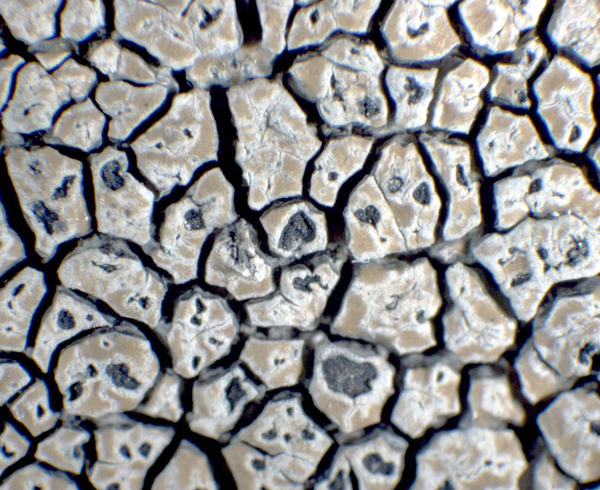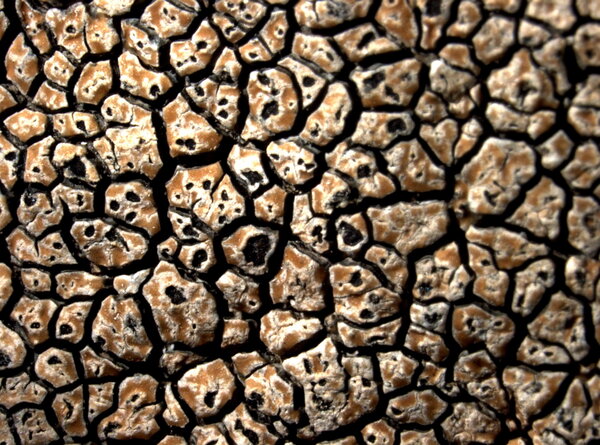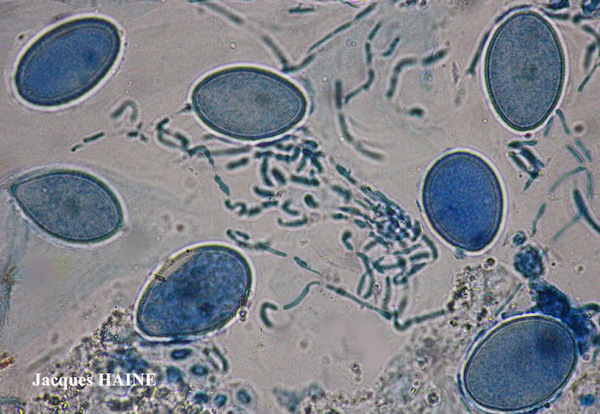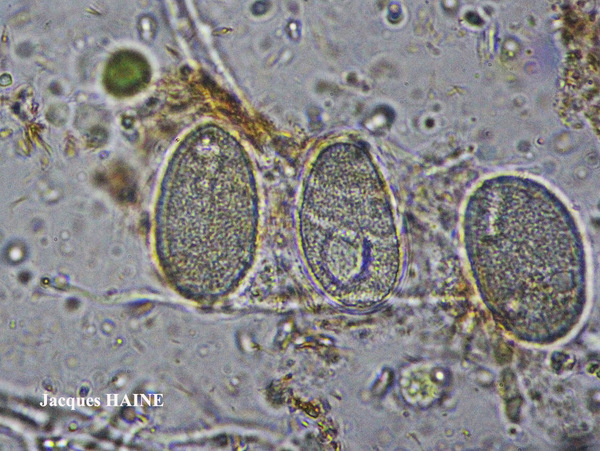Aspiciliella intermutans (Nyl.) M. Choisy
in Werner, Cavanillesia 5: 166 (1932). Basionym: Lecanora intermutans Nyl. - Flora, 55: 354, 1872.
Synonyms: Aspicilia ammotropha Hue; Aspicilia intermutans (Nyl.) Arnold; Aspicilia intermutans (Nyl.) Arnold; Aspicilia reticulata Kremp.?; Aspicilia trachytica Flagey non (A. Massal.) Arnold; Aspiciliella intermutans (Nyl.) M. Choisy; Lecanora ammotropha (Hue) Zahlbr.
Distribution: N - VG (Tretiach & al. 2007b, 2012), Ven, TAA (Nascimbene & al. 2022), Lig (Valcuvia & al. 2000). C - Tosc, Laz (Tretiach 2004, Genovesi & al. 2011, Roccardi & al. 2014), Mol (Ravera & Genovesi 2012, Genovesi & Ravera 2014), Sar (Nöske 2000, Rizzi & al. 2011, Giordani & al. 2013, Neuwirth 2018, Brackel & Berger 2019, Zakeri & al. 2019). S - Camp (Aprile & al. 2002, Nimis & Tretiach 2004, Catalano & al. 2016), Bas (Nimis & Tretiach 1999, Potenza 2006), Cal (Puntillo 1996, Scarciglia & al. 2012, 2012b), Si (Nimis & al. 1996b, Grillo & al. 1996, Ottonello & Romano 1997, Grillo 1998, Poli & Grillo 2000, Grillo & Caniglia 2004, Campisi & al. 2020).
Description: Thallus crustose, episubstratic, areolate, forming up to 15 cm wide patches. Areoles irregular, usually angular, flat to strongly convex in some forms, whitish grey to pale grey-brown or ochre-coloured, usually paler at margins, separated by deep cracks. Apothecia cryptolecanorine-aspicilioid, round to angular or almost linear, immersed, 2-3 per areole, 0.2-1 mm wide, with a concave to flat, black, usually epruinose disc (but pruinose in some forms with verrucose areoles), and a thin to rather thick thalline margin. Proper exciple thin, colourless; epithecium green to olive-green or greenish brown, N+ brighter green; hymenium and hypothecium colourless, I+ blue to reddish, the hypothecium not subtended by an algal layer; paraphyses coherent, scarcely swollen, to 2 µm wide at tips. Asci (6-)8-spored, clavate, the thin outer coat K/I+ blue, the wall and apical dome K/I-. Ascospores 1-celled, hyaline, broadly ellipsoid, (20-)22-28 x 11-14 µm, thin-walled, 1-2-seriate in the asci. Pycnidia with a black, punctiform ostiole and a colourless wall. Conidia bacilliform, straight, 7-12 x c. 1 µm. Photobiont chlorococcoid. Spot tests: cortex and medulla K+ yellow turning red (needle-like crystals), C-, KC-, P+ yellow-orange. Chemistry: norstictic, connorstictic and constictic acids. Note: on more or less base-rich siliceous rocks wetted by rain. Common in Mediterranean Italy, rare or absent only along the Adriatic side of the Peninsula, mainly because of the scarcity of suitable substrata. Most of the other records from the Alps, especially those from high altitudes, are likely to refer to Aspilidea myrinii (Malícek in litt.) or to other species. According to Zakeri & al. (2019) in Eurasia there are several different cryptic species, but all samples from the Mediterranean region belong to the same clade.
Growth form: Crustose
Substrata: rocks
Photobiont: green algae other than Trentepohlia
Reproductive strategy: mainly sexual
Commonnes-rarity: (info)
Alpine belt: absent
Subalpine belt: absent
Oromediterranean belt: absent
Montane belt: very rare
Submediterranean belt: rare
Padanian area: absent
Humid submediterranean belt: very common
Humid mediterranean belt: common
Dry mediterranean belt: rare

Predictive model
Herbarium samples
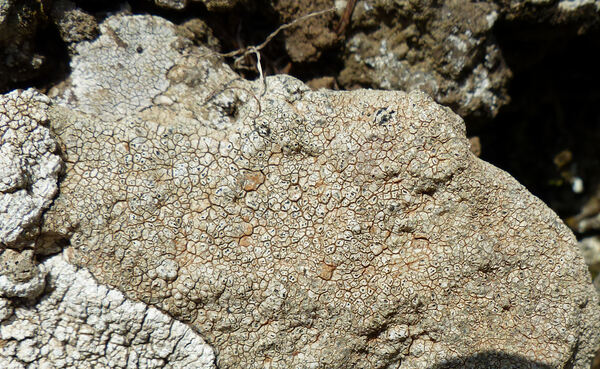

Andrea Moro; Owner: Department of Life Sciences, University of Trieste
Italy, Lazio, Roma, Ruines of ancient Tusculum, above Frascati
18/03/2017
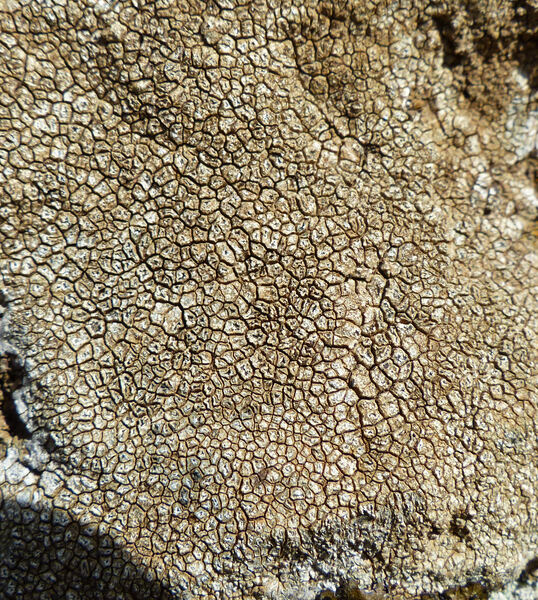

Andrea Moro; Owner: Department of Life Sciences, University of Trieste
Italy, Lazio, Roma, Ruines of ancient Tusculum, above Frascati
18/03/2017
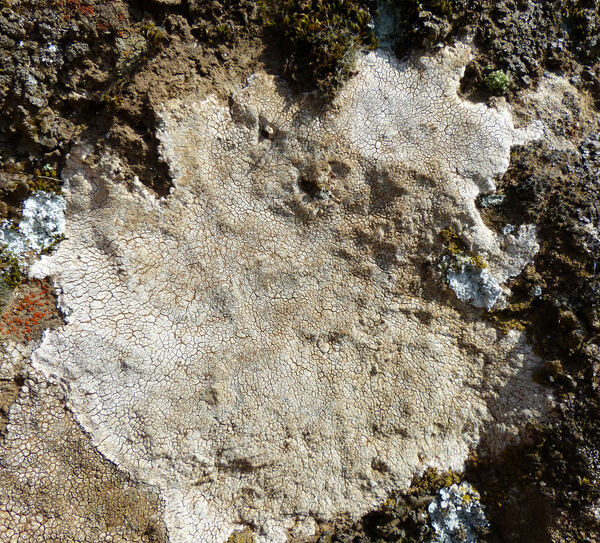

Andrea Moro; Owner: Department of Life Sciences, University of Trieste
Italy, Lazio, Roma, Ruines of ancient Tusculum, above Frascati
18/03/2017
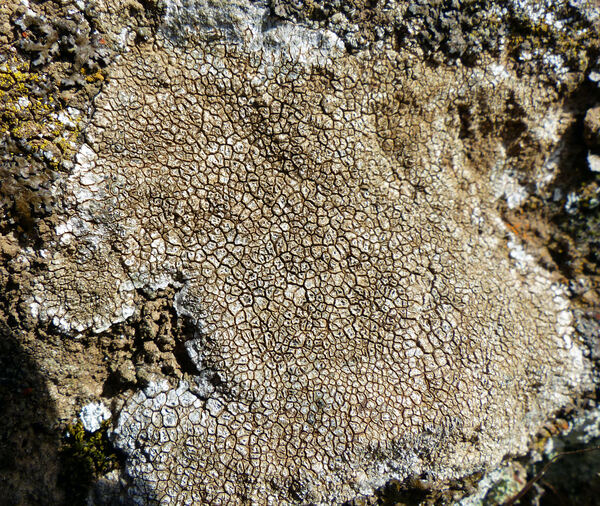

Andrea Moro; Owner: Department of Life Sciences, University of Trieste
Italy, Lazio, Roma, Ruines of ancient Tusculum, above Frascati
18/03/2017
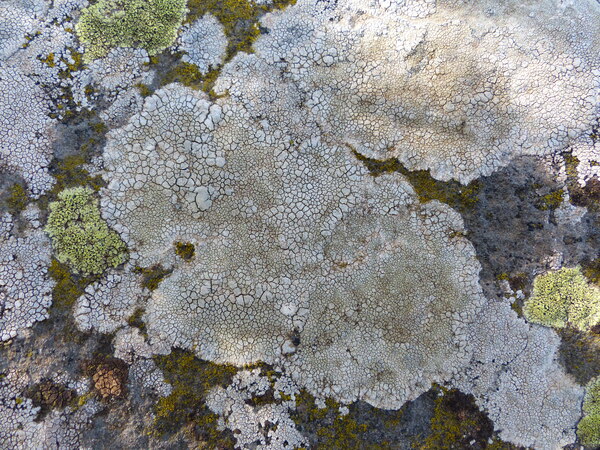

Andrea Moro; Owner: Department of Life Sciences, University of Trieste
Italy, Lazio, Roma, Ruines of ancient Tusculum, above Frascati
18/03/2017
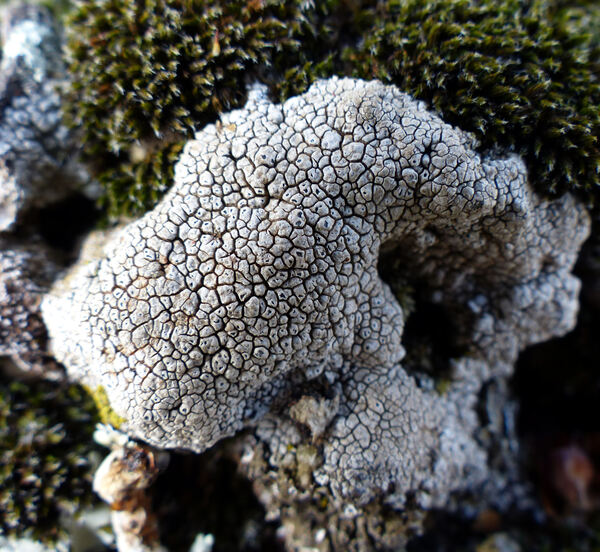

Andrea Moro; Owner: Department of Life Sciences, University of Trieste
Italy, Lazio, Roma, Ruines of ancient Tusculum, above Frascati
18/03/2017
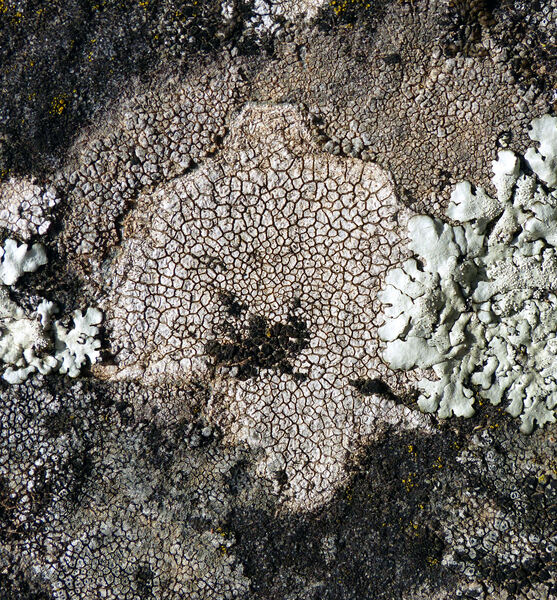

Andrea Moro; Owner: Department of Life Sciences, University of Trieste
Italy, Lazio, Roma, Ruines of ancient Tusculum, above Frascati
18/03/2017
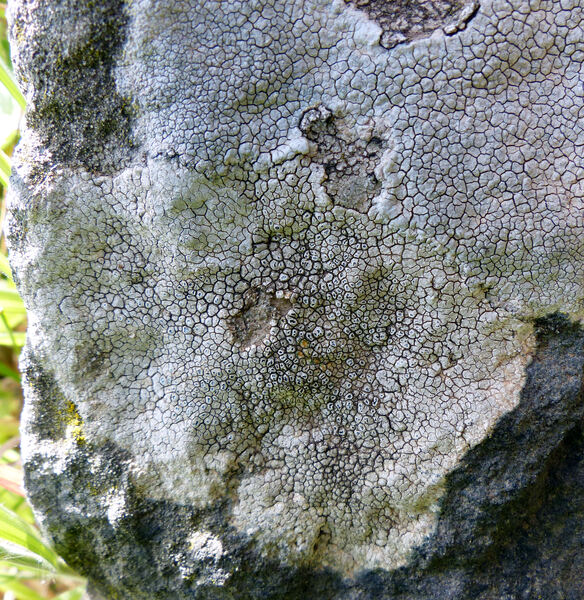

Andrea Moro; Owner: Department of Life Sciences, University of Trieste
Italy, Lazio, Roma, Ruines of ancient Tusculum, above Frascati
18/03/2017
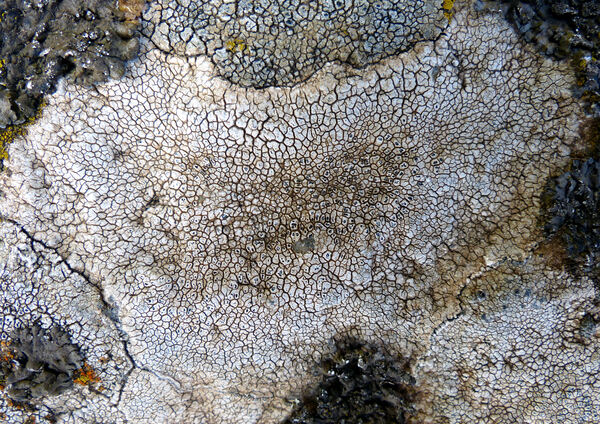

Andrea Moro; Owner: Department of Life Sciences, University of Trieste
Italy, Lazio, Roma, Ruines of ancient Tusculum, above Frascati
18/03/2017
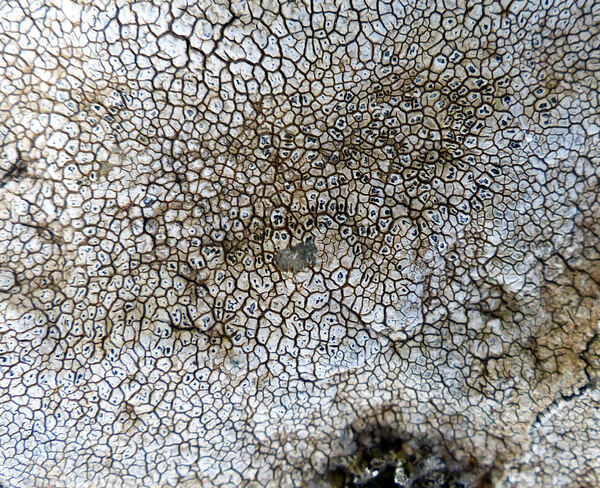

Andrea Moro; Owner: Department of Life Sciences, University of Trieste
Italy, Lazio, Roma, Ruines of ancient Tusculum, above Frascati
18/03/2017
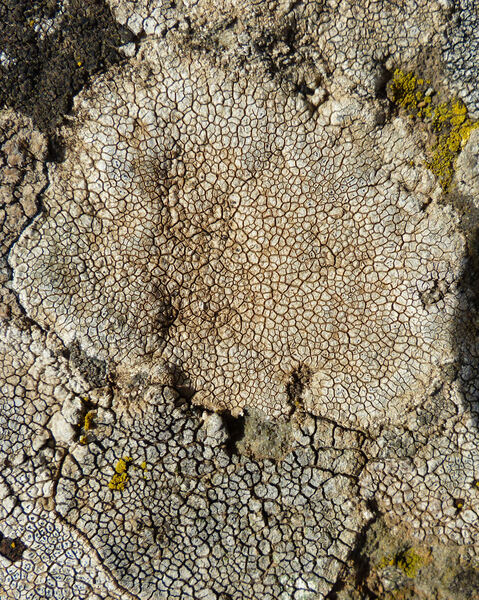

Andrea Moro; Owner: Department of Life Sciences, University of Trieste
Italy, Lazio, Roma, Ruines of ancient Tusculum, above Frascati
18/03/2017
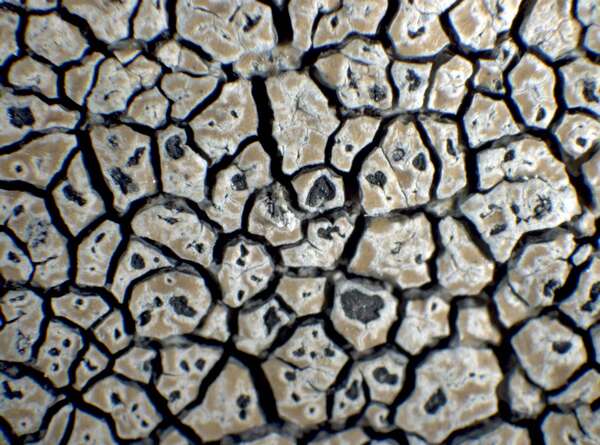

P.L. Nimis; Owner: Department of Life Sciences, University of Trieste
Herbarium: TSB (11738)
2001/11/22
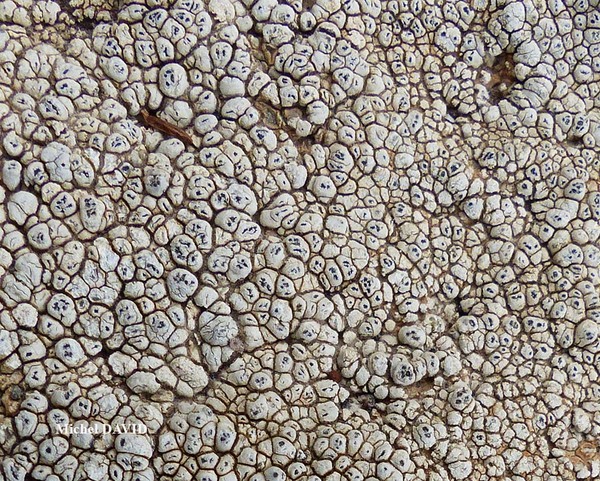
Michel David - Source: http://www.lichensmaritimes.org/index.php?task=fiche&lichen=109&lang=en
France, Rochers côtiers Telgruc
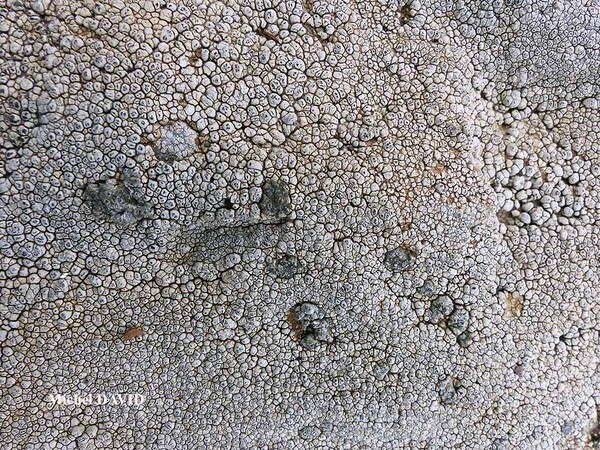
Michel David - Source: http://www.lichensmaritimes.org/index.php?task=fiche&lichen=109&lang=en
France, Rochers côtiers Telgruc
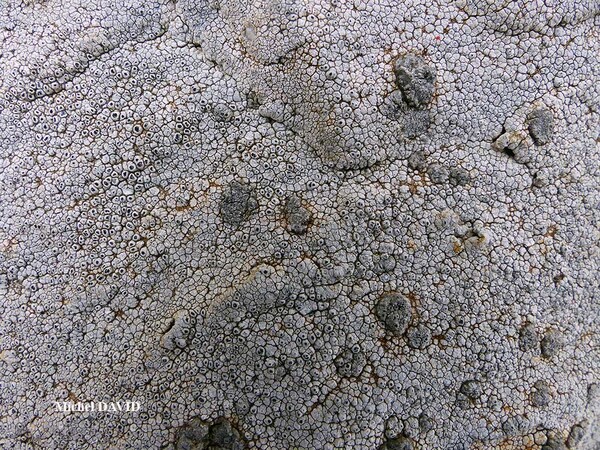
Michel David - Source: http://www.lichensmaritimes.org/index.php?task=fiche&lichen=109&lang=en
France, Rochers côtiers Telgruc
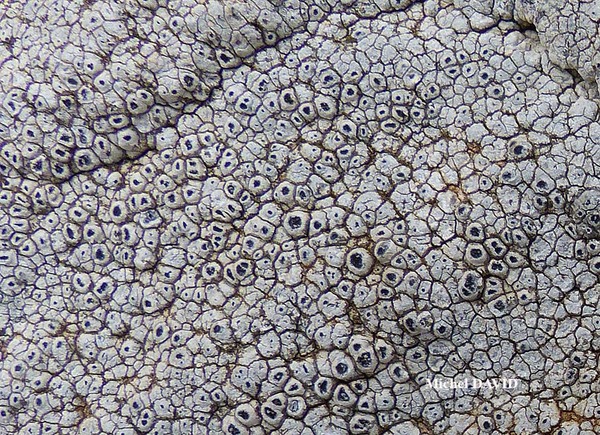
Michel David - Source: http://www.lichensmaritimes.org/index.php?task=fiche&lichen=109&lang=en
France, Rochers côtiers Telgruc
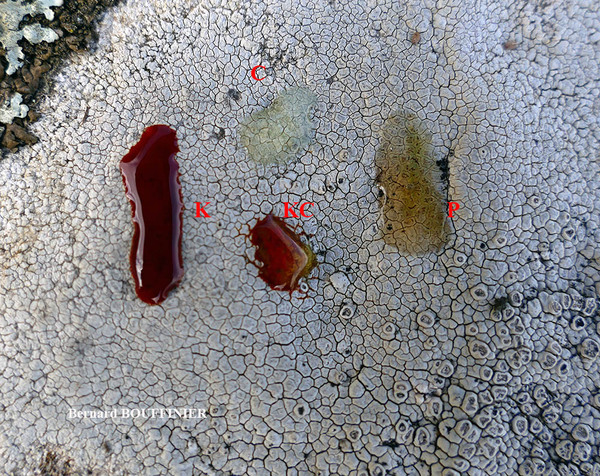
Bernard Bouffiner - Source: http://www.lichensmaritimes.org/index.php?task=fiche&lichen=109&lang=en
France, Rochers côtiers Kerloc'h
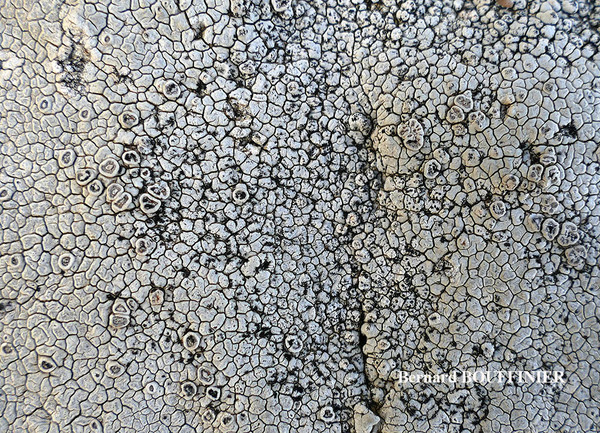
Bernard Bouffiner - Source: http://www.lichensmaritimes.org/index.php?task=fiche&lichen=109&lang=en
France, Rochers côtiers Kerloc'h
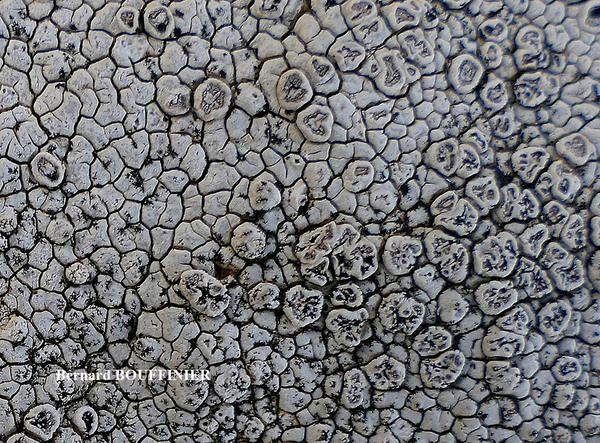
Bernard Bouffiner - Source: http://www.lichensmaritimes.org/index.php?task=fiche&lichen=109&lang=en
France, Rochers côtiers Kerloc'h
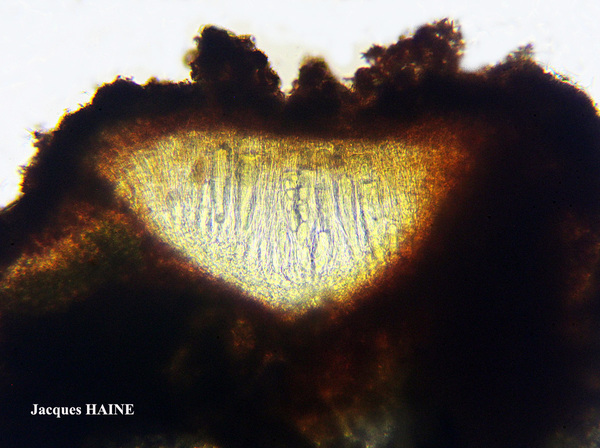
Jacques Haine - Source: http://www.lichensmaritimes.org/index.php?task=fiche&lichen=109&lang=en
France, Pointe de Dinan
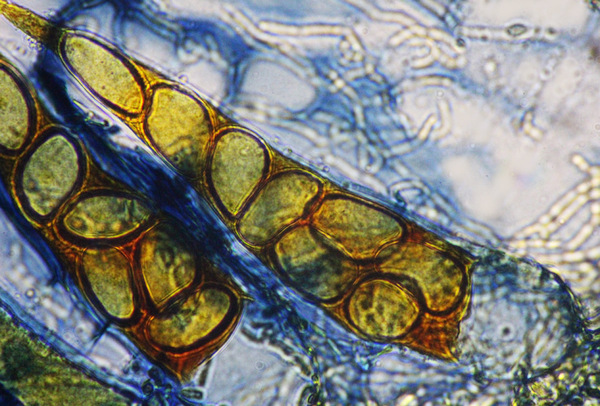
Jacques Haine - Source: http://www.lichensmaritimes.org/index.php?task=fiche&lichen=109&lang=en
France, Pointe de Dinan
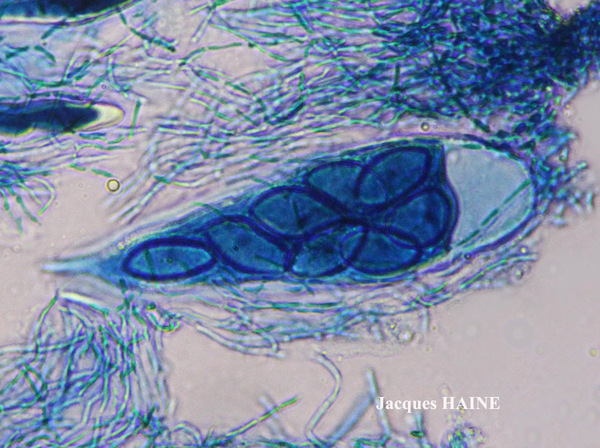
Jacques Haine - Source: http://www.lichensmaritimes.org/index.php?task=fiche&lichen=109&lang=en
France, Pointe de Dinan
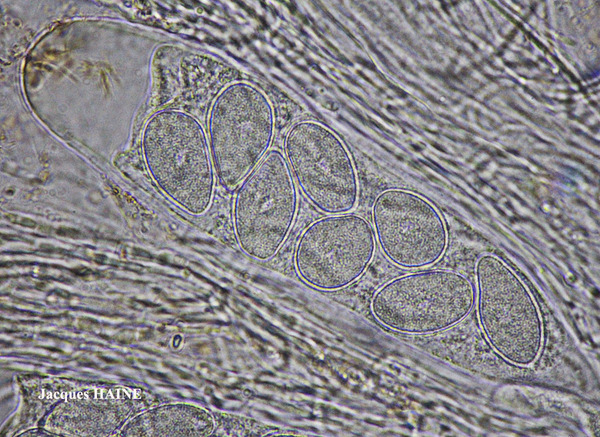
Jacques Haine - Source: http://www.lichensmaritimes.org/index.php?task=fiche&lichen=109&lang=en
France, Pointe de Dinan
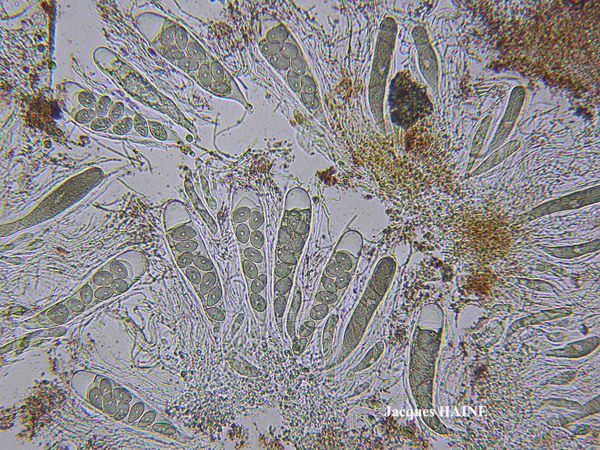
Jacques Haine - Source: http://www.lichensmaritimes.org/index.php?task=fiche&lichen=109&lang=en
France, Pointe de Dinan
Growth form: Crustose
Substrata: rocks
Photobiont: green algae other than Trentepohlia
Reproductive strategy: mainly sexual
Commonnes-rarity: (info)
Alpine belt: absent
Subalpine belt: absent
Oromediterranean belt: absent
Montane belt: very rare
Submediterranean belt: rare
Padanian area: absent
Humid submediterranean belt: very common
Humid mediterranean belt: common
Dry mediterranean belt: rare

Predictive model
| Herbarium samples |


Andrea Moro; Owner: Department of Life Sciences, University of Trieste
Italy, Lazio, Roma, Ruines of ancient Tusculum, above Frascati
18/03/2017


Andrea Moro; Owner: Department of Life Sciences, University of Trieste
Italy, Lazio, Roma, Ruines of ancient Tusculum, above Frascati
18/03/2017


Andrea Moro; Owner: Department of Life Sciences, University of Trieste
Italy, Lazio, Roma, Ruines of ancient Tusculum, above Frascati
18/03/2017


Andrea Moro; Owner: Department of Life Sciences, University of Trieste
Italy, Lazio, Roma, Ruines of ancient Tusculum, above Frascati
18/03/2017


Andrea Moro; Owner: Department of Life Sciences, University of Trieste
Italy, Lazio, Roma, Ruines of ancient Tusculum, above Frascati
18/03/2017


Andrea Moro; Owner: Department of Life Sciences, University of Trieste
Italy, Lazio, Roma, Ruines of ancient Tusculum, above Frascati
18/03/2017


Andrea Moro; Owner: Department of Life Sciences, University of Trieste
Italy, Lazio, Roma, Ruines of ancient Tusculum, above Frascati
18/03/2017


Andrea Moro; Owner: Department of Life Sciences, University of Trieste
Italy, Lazio, Roma, Ruines of ancient Tusculum, above Frascati
18/03/2017


Andrea Moro; Owner: Department of Life Sciences, University of Trieste
Italy, Lazio, Roma, Ruines of ancient Tusculum, above Frascati
18/03/2017


Andrea Moro; Owner: Department of Life Sciences, University of Trieste
Italy, Lazio, Roma, Ruines of ancient Tusculum, above Frascati
18/03/2017


Andrea Moro; Owner: Department of Life Sciences, University of Trieste
Italy, Lazio, Roma, Ruines of ancient Tusculum, above Frascati
18/03/2017


P.L. Nimis; Owner: Department of Life Sciences, University of Trieste
Herbarium: TSB (11738)
2001/11/22

Michel David - Source: http://www.lichensmaritimes.org/index.php?task=fiche&lichen=109&lang=en
France, Rochers côtiers Telgruc

Michel David - Source: http://www.lichensmaritimes.org/index.php?task=fiche&lichen=109&lang=en
France, Rochers côtiers Telgruc

Michel David - Source: http://www.lichensmaritimes.org/index.php?task=fiche&lichen=109&lang=en
France, Rochers côtiers Telgruc

Michel David - Source: http://www.lichensmaritimes.org/index.php?task=fiche&lichen=109&lang=en
France, Rochers côtiers Telgruc

Bernard Bouffiner - Source: http://www.lichensmaritimes.org/index.php?task=fiche&lichen=109&lang=en
France, Rochers côtiers Kerloc'h

Bernard Bouffiner - Source: http://www.lichensmaritimes.org/index.php?task=fiche&lichen=109&lang=en
France, Rochers côtiers Kerloc'h

Bernard Bouffiner - Source: http://www.lichensmaritimes.org/index.php?task=fiche&lichen=109&lang=en
France, Rochers côtiers Kerloc'h

Jacques Haine - Source: http://www.lichensmaritimes.org/index.php?task=fiche&lichen=109&lang=en
France, Pointe de Dinan

Jacques Haine - Source: http://www.lichensmaritimes.org/index.php?task=fiche&lichen=109&lang=en
France, Pointe de Dinan

Jacques Haine - Source: http://www.lichensmaritimes.org/index.php?task=fiche&lichen=109&lang=en
France, Pointe de Dinan

Jacques Haine - Source: http://www.lichensmaritimes.org/index.php?task=fiche&lichen=109&lang=en
France, Pointe de Dinan

 INDEX FUNGORUM
INDEX FUNGORUM
 GBIF
GBIF
 DOLICHENS
DOLICHENS
